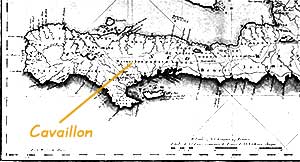Tilh, 20th March 1801
You must wonder, my dear friend, at not having received any news from me! After wisely spending the holidays here, I took advantage of the fine weather during Lent to do a bit of travelling with Mama. Here I am home again at last and writing to you, which consoles me for having deferred it so long. You must have been busy making and receiving visits. If you did not spend the holidays in Cahors, I presume you will have been entertaining company at home; so it is only I who will be aware of the lateness of my reply. As for you, my dearest Sophie, I hope you do not make me wait too long. I am counting on your indulgence and your friendship.
So! You are married, my dear friend! I cannot tell you the joy I feel at seeing you settled and content. You know my heart and can simply take from it all the joy I wish you for the person you are. I am sure you must be happy, and your husband’s sweet nature can only promise perfect bliss for you both. How wonderful to be so near your family! You can see them every day, or at least very often. That is an advantage you will all appreciate and which will lessen the melancholy Fanny must be feeling at your departure. What this separation must have have cost you both! I put myself in your place and feel for you. You must be in your new home by now—I expect a description. Congratulations on its pleasant surroundings, because that is half of country life, and it is better to be strolling in a pretty grove or a fine avenue than along a stony road. Here, the latter is the only walk we have, so you will hardly ever find me there.
Do you think you will spend some of the year in Cahors or remain in the country? What is your husband’s situation? Tell me everything, my dear friend. All that concerns you affects me deeply, and I am not as afraid as you might think of giving my curiosity full rein.
Now I am going to talk about all my little
matters! I am sure you will be pleased to hear we have received news
from Saint-Domingue.  The
person in charge of our affairs seems to be keeping an eye on things,
and tells us our property, which was leased to the Commissary of the Cayes,
has continued to be well cultivated. By means of a loan, he has managed
to get sufficient negroes so that although there will be no new
plantations, we shall at least find the existing ones still
functioning. He writes that the buildings are very dilapidated: the
negroes’ hut has almost collapsed. The hospital (which was for the
negroes too) is not in such a bad state but needs significant repairs,
as does the house. What did the planter care about the buildings’
decay? He raked in the takings and only maintained essentials like the
coffee mill. That, my dear friend, is what we have long wanted to
find out. We hope to receive funds soon and then, during the next month
of Thermidor,
when the lease ends,
will most probably depart to take possession ourselves.
The
person in charge of our affairs seems to be keeping an eye on things,
and tells us our property, which was leased to the Commissary of the Cayes,
has continued to be well cultivated. By means of a loan, he has managed
to get sufficient negroes so that although there will be no new
plantations, we shall at least find the existing ones still
functioning. He writes that the buildings are very dilapidated: the
negroes’ hut has almost collapsed. The hospital (which was for the
negroes too) is not in such a bad state but needs significant repairs,
as does the house. What did the planter care about the buildings’
decay? He raked in the takings and only maintained essentials like the
coffee mill. That, my dear friend, is what we have long wanted to
find out. We hope to receive funds soon and then, during the next month
of Thermidor,
when the lease ends,
will most probably depart to take possession ourselves.
I think you will take an interest in all this, needing no say-so from you to believe it, counting on our friendship to be understood. Would you not imagine that I burn to be in Saint-Domingue? Ten years of misfortune, it is true, are enough to make me wish for just that, but when I think of all the ties I have here I would put the trip off as long as possible. Above all, our good little Tata, who is in really bad health, would not be able to follow us. What such a separation would cost me, my dear friend! I cannot think of it without a terrible pang. Sometimes, to comfort myself, I imagine we will never leave. Ah, you can well appreciate how wonderful that would be! I am sure you would not see me go without a few regrets, because the addition of 1800 leagues to those that separate us would be hard to bear, would hinder us from writing to one another. What an affliction on top of everything else! Well, let us not talk of it any more, my courage is already hanging by a thread.
Our little Tata suffers constantly from a bad chest. She sends you her regards, as do Papa and Mama. We all send greetings to your husband and the family, and I ask you, in particular, to give Fanny a kiss from me.
You remember de Descayre, who boarded with you at Lévignac? She married a gentleman named Foutas four years ago and is the mother of two little girls. Well, my dear, this poor young woman has the lung fever and is perhaps gone as we speak. With what anguish she must be departing her life, for she is a good mother. How I grieve for those poor little children! Their father will of course take good care of them, but it could not compare to the care of their mother. The loss of a loving mother is an irreparable hurt for everyone.


